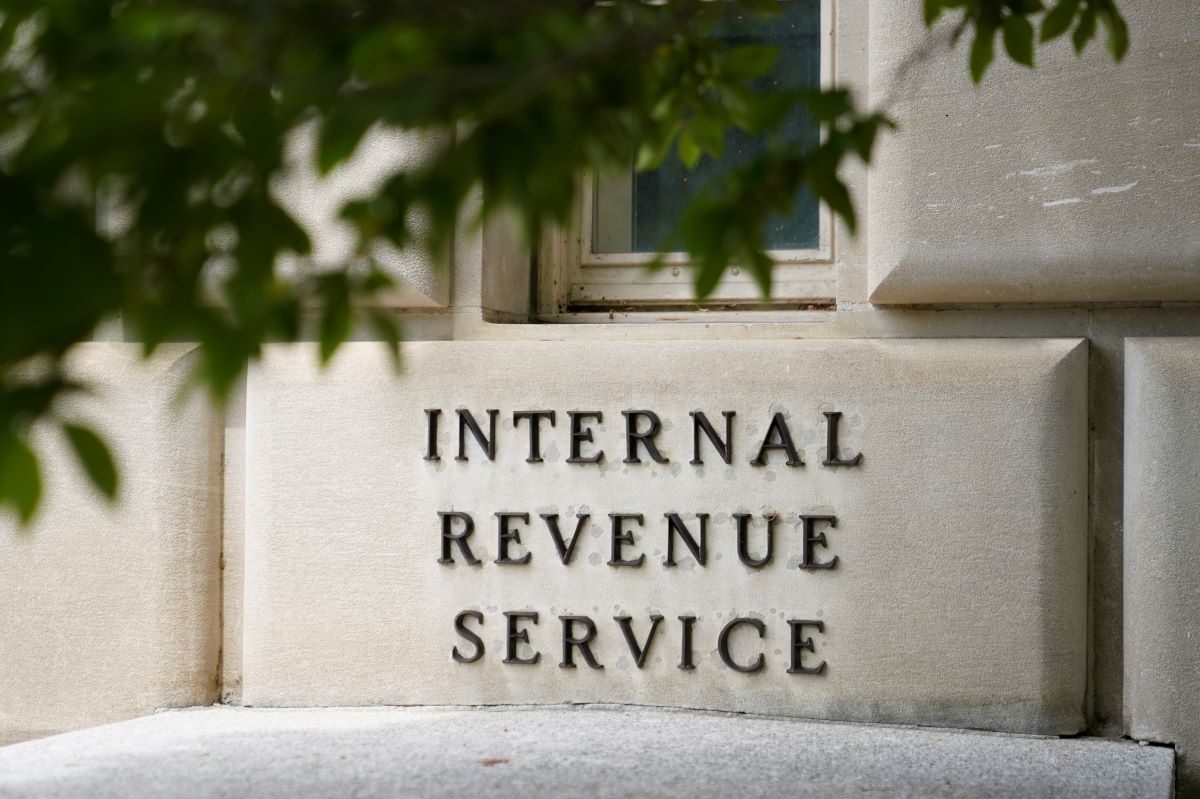

Finance
How Much Does An IRS Lawyer Cost?
Published: October 31, 2023
Find out the cost of hiring an IRS lawyer and how they can assist you with your finance-related legal matters. Expert advice and affordable rates available.
(Many of the links in this article redirect to a specific reviewed product. Your purchase of these products through affiliate links helps to generate commission for LiveWell, at no extra cost. Learn more)
Table of Contents
Introduction
Dealing with the Internal Revenue Service (IRS) can be a daunting and complex process. Whether you are facing an audit, owe back taxes, or need assistance with tax planning, seeking the help of an IRS lawyer can provide you with the expertise and guidance you need. However, one question that often arises when considering hiring an IRS lawyer is: how much does it cost?
The cost of hiring an IRS lawyer can vary depending on several factors. Understanding these factors can help you make an informed decision and budget accordingly. In this article, we will explore the factors that can affect the cost of an IRS lawyer, the different fee structures commonly employed, the average cost you can expect to pay, additional expenses to consider, and ways to minimize the overall cost.
Before delving into the details, it’s important to note that while hiring an IRS lawyer may incur expenses, the benefits far outweigh the costs. By engaging the services of a qualified professional, you can navigate the complexities of the tax system, avoid costly mistakes, protect your rights, and potentially reduce tax liabilities.
Now, let’s dive into the factors that can influence the cost of hiring an IRS lawyer.
Factors Affecting the Cost of an IRS Lawyer
The cost of hiring an IRS lawyer can vary based on several factors. Understanding these factors can help you anticipate and evaluate the potential cost involved. Here are the key factors that can influence the cost of hiring an IRS lawyer:
- Complexity of the Case: The complexity of your tax issue plays a significant role in determining the cost of hiring an IRS lawyer. More complex cases that require extensive research, analysis, and negotiations may result in higher fees. For example, if you are facing a tax audit, have offshore accounts, or are dealing with multiple years of unfiled taxes, the complexity of your case will likely increase the costs.
- Experience and Reputation: The experience and reputation of the IRS lawyer can impact the cost. Highly experienced lawyers with a proven track record of successfully handling complicated tax matters typically charge higher fees. Their expertise and reputation often command a premium, as clients perceive them as being more capable of achieving favorable outcomes.
- Time and Effort Required: The amount of time and effort the lawyer needs to invest in your case will affect the cost. IRS-related legal matters can be time-consuming, involving extensive document gathering, research, negotiations, and potentially court representation. Lawyers charge for the time they spend on your case, so cases that require more time will naturally have higher costs.
- Geographical Location: The geographical location of the lawyer can also impact the cost. Lawyers in big cities or areas with a high cost of living generally charge higher fees compared to those in smaller towns. While location alone shouldn’t be the sole determinant of your choice, it’s essential to consider the cost of living differences, as they can influence the lawyer’s fees.
- Specialized Knowledge: If your tax issue requires specialized knowledge, such as international tax law, corporate taxation, or estate planning, the lawyer’s expertise in that specific area can affect the cost. Lawyers with specialized knowledge often charge higher fees due to the expertise they bring to the table.
It is worth noting that each case is unique, and the factors mentioned above are not exhaustive. Other factors that can impact the cost include the lawyer’s overhead expenses, the demand for their services, and the level of competition in the market.
Now that we have explored the factors that influence the cost, let’s move on to understand the different fee structures commonly used by IRS lawyers in the next section.
Hourly Rates vs. Flat Fees
When hiring an IRS lawyer, it’s crucial to understand the different fee structures and how they can impact the overall cost. The two most common fee structures used by IRS lawyers are hourly rates and flat fees.
Hourly Rates: Many IRS lawyers charge on an hourly basis. This means you pay for the time the lawyer spends working on your case. The hourly rate can vary depending on the lawyer’s experience, reputation, and location. More experienced lawyers tend to have higher hourly rates. While hourly rates allow for a flexible payment structure based on the actual time spent, the final cost can be challenging to estimate, especially for cases with unknown complexities or unexpected developments.
Flat Fees: Some IRS lawyers may offer flat fees for certain services or stages of the case. A flat fee is a fixed amount agreed upon at the beginning, regardless of the actual time and effort required. Flat fees are commonly used for specific services like filing a tax return, responding to an IRS notice, or attending a tax hearing. This fee structure provides more predictability and transparency regarding the cost, which can be advantageous if you have a clear understanding of the scope of work involved.
It’s important to discuss and clarify the fee structure with the IRS lawyer before engaging their services. Understanding how they charge and what services are included in the fee is essential to avoid surprises and potential disputes down the line.
It’s also worth mentioning that some lawyers may require an upfront retainer fee before starting the work. The retainer fee is an advance payment that the lawyer holds in a trust account and deducts the hourly fees or flat fees from as the work progresses. Discussing the retainer fee and how it will be applied is essential for budgeting purposes.
Now that we have covered the fee structures, let’s move on to explore the average cost of hiring an IRS lawyer in the next section.
Average Cost of Hiring an IRS Lawyer
The cost of hiring an IRS lawyer can vary significantly depending on the factors mentioned earlier. However, it is helpful to have a general idea of the average cost to set realistic expectations. Keep in mind that these figures are approximate and can vary based on your specific circumstances and the lawyer you choose to work with.
Hourly Rates: IRS lawyers’ hourly rates can range from $200 to $500 or more per hour. The actual rate will depend on factors such as the lawyer’s experience, reputation, location, and the complexity of your case. Higher rates are typically associated with lawyers who specialize in complex tax matters or have extensive experience handling IRS-related issues.
Flat Fees: For certain specific services, IRS lawyers may offer flat fees. The cost for filing a tax return, responding to an IRS notice, or attending a tax hearing can range from a few hundred to several thousand dollars, depending on the complexity of the case and the lawyer’s expertise.
Remember that these figures are average estimates and can vary significantly. It’s crucial to obtain quotes from several IRS lawyers and discuss the specific details of your case to get a more accurate estimate of the cost involved.
In addition to the lawyer’s fees, it’s also essential to consider any additional costs or expenses associated with your case, which we will explore in the next section.
Now that we have discussed the average cost, let’s move on to understanding the additional costs and expenses associated with hiring an IRS lawyer.
Additional Costs and Expenses
When hiring an IRS lawyer, it’s important to consider the potential additional costs and expenses that may arise throughout the course of your case. While the lawyer’s fees are a significant component of the overall cost, there are other factors to take into account. Here are some additional costs and expenses to consider:
- Administrative and Filing Fees: Depending on your specific case, there may be administrative and filing fees associated with certain actions or submissions to the IRS. These fees can include things like filing a tax return, providing documentation, or requesting appeals. It’s important to clarify with your lawyer upfront about any expected administrative or filing fees that you may need to cover.
- Expert Witness or Consultant Fees: In some complex cases, your IRS lawyer may need to enlist the help of expert witnesses or consultants to provide specialized knowledge or support. These professionals may charge their own fees for their services, which can add to the overall cost. Discuss with your lawyer whether such experts are necessary for your case and factor in their potential fees.
- Court Costs: If your case requires litigation or court representation, there may be court costs involved, such as filing fees, witness fees, or transcript fees. These costs can vary depending on the jurisdiction and the specific requirements of the case. Your lawyer can provide you with an estimate of potential court costs and explain how they will be handled.
- Third-Party Fees: Depending on the nature of your case, there may be additional fees payable to third parties, such as accountants, tax preparers, or specialists in relevant fields. These fees can arise if additional services are needed to support your legal strategy or to comply with IRS requirements. Discuss with your lawyer if such third-party fees are anticipated and how they will be accounted for.
- Travel Expenses: In certain situations, your lawyer may need to travel for meetings, negotiations, or court appearances. Travel expenses, including transportation, accommodations, and meals, may be included in the overall cost. It’s important to clarify with your lawyer how travel expenses will be handled and if they will be billed separately.
Considering these additional costs and expenses will help you prepare a realistic budget for your IRS legal representation. Discuss these potential expenses with your lawyer to gain a complete understanding of the financial implications of your case.
Now, let’s move on to explore some ways in which you can minimize the overall cost of hiring an IRS lawyer.
Ways to Minimize the Cost of Hiring an IRS Lawyer
Hiring an IRS lawyer can be a significant financial commitment, but there are strategies you can employ to help minimize the overall cost. Here are some ways to reduce expenses while still receiving quality legal representation:
- Seek Multiple Quotes: Don’t settle for the first IRS lawyer you come across. Reach out to multiple lawyers and obtain quotes for their services. This will allow you to compare rates, evaluate their experience, and find a lawyer who offers a good balance of quality and affordability.
- Be Prepared and Organized: Make the most of your lawyer’s time by being prepared and organized. Provide all necessary documentation and information upfront, which can help reduce research and gathering time. This way, your lawyer can focus on the more critical aspects of your case, optimizing their billable hours.
- Communicate Effectively: Good communication with your lawyer is essential to keep costs in check. Clearly communicate your goals, concerns, and questions. Be prompt in providing requested information and responding to your lawyer’s queries. Clear and efficient communication can help avoid misunderstandings, prevent unnecessary work, and save time and costs.
- Consider Alternatives: Depending on the complexity of your case, hiring an IRS lawyer may not always be necessary. For less complex tax matters, consider alternatives such as hiring a tax professional or utilizing IRS resources for guidance. However, for more complex and potentially high-stakes cases, the expertise of an IRS lawyer is highly recommended.
- Ask about Fee Structures and Expenses: During your initial consultation with the IRS lawyer, inquire about the fee structure and any potential additional expenses. Understand how they charge for their services, the estimated duration of the case, and the possibility of flat fees for specific tasks. This transparency will help you budget more effectively.
- Explore Payment Options: If the upfront cost of hiring an IRS lawyer presents a financial challenge, discuss potential payment options with the lawyer. They may offer payment plans, allowing you to spread the cost over time. Keep in mind that any deferred payments may incur additional fees or interests, so carefully evaluate the terms before agreeing to a payment plan.
- Consider Pro Bono or Low-Cost Legal Services: Depending on your financial circumstances and the nature of your case, you may be eligible for pro bono (free) or low-cost legal services. Reach out to local legal aid organizations, bar associations, or non-profit organizations that offer assistance to individuals who cannot afford traditional legal representation.
By employing these strategies, you can mitigate the cost of hiring an IRS lawyer while still receiving the necessary legal expertise to navigate your tax-related issues.
Now, let’s wrap up our discussion in the next section.
Conclusion
Hiring an IRS lawyer is a significant decision that can help you navigate the complexities of tax-related matters and protect your rights. While the cost of hiring an IRS lawyer can vary depending on factors such as complexity, experience, and location, understanding these factors is crucial for budgeting and making an informed choice.
Hourly rates and flat fees are the two common fee structures used by IRS lawyers. Hourly rates provide flexibility, while flat fees offer predictability. Understanding the fee structure and discussing it with your lawyer will help you manage expectations and avoid surprises.
Average costs of hiring an IRS lawyer can range from hundreds to thousands of dollars, depending on your specific circumstances and the scope of work involved. It’s important to obtain quotes from multiple lawyers and consider their expertise and experience in relation to the cost.
In addition to the lawyer’s fees, it’s essential to consider potential additional costs and expenses related to your case, such as administrative fees, expert witness fees, court costs, third-party fees, and travel expenses.
To minimize the overall cost, seek multiple quotes, be organized and prepared, maintain effective communication with your lawyer, consider alternatives when appropriate, inquire about fee structures and potential payment options, and explore pro bono or low-cost legal services if eligible.
Remember, while cost is an important consideration, the expertise and guidance of an IRS lawyer can provide valuable insights, protect your rights, and potentially help reduce tax liabilities in the long run.
Make sure to thoroughly research and choose a qualified IRS lawyer who understands your specific needs and has a proven track record in handling similar cases. By doing so, you can have peace of mind knowing that you have professional support as you navigate the intricacies of the IRS and the tax system.
Now that you have a better understanding of the cost factors and options involved in hiring an IRS lawyer, you can confidently make decisions that align with your needs and financial situation.














